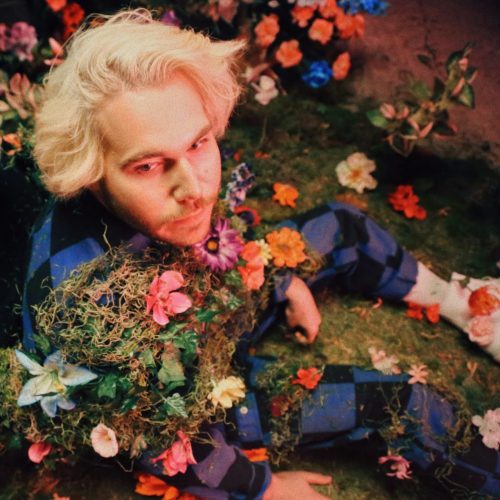Even though “Speedracer” by Brooklyn-based artist Harrison Lipton is about a relationship that ultimately ended, it’s so smooth and melodic that I’m going to play this R&B gem all summer.
Lipton started his career as an indie rocker, but he’s an absolute natural in the R&B realm. “Speedracer” is actually a triple treat, with features by the ultra-talented Hadji Gaviota and Ivy Sole.
“Speedracer” is an exhilarating trip to the timeless: it would have sounded equally fresh in the ’80s or ’90s because grooves this great never go out of style.
“Speedracer” is the essence of smooth, melodic R&B. It sounds perfect for 2022, but I could hear it being played on Soul Train in the ’80s, too. Who are some of your biggest musical influences in R&B?
As a little kid driving on long car trips my parents would bring a bag of different R&B CDs that I came to revere: Sade’s Lovers Rock, Marvin Gaye, Stevie Wonder’s Songs In the Key of Life, etc. After so many years I still revisit these albums with wonder and admiration, hearing new things my ears didn’t pick up on when I was young. When it comes to more modern sounds, Frank Ocean’s Blonde has been my favorite album of the year for the past 6 (?) years. I also love listening to Chiiild, Lucky Daye, Jai Paul, Alex Isley to name a few. R&B is getting reinvented all the time, and I’ve always wanted to make an R&B record that felt true to myself.
You’ve written and sung many different types of music. Which one is your favorite so far?
It’s hard to say––at the end of the day, it’s all tied to how well I can produce and actualize what I hear in my head. My first record is really just me sitting alone one summer, teaching myself how to produce on Ableton, and it sounds rough around the edges and a little raw. But the more I learn, the more I’m able to make what I hear in my head. I think I’m finally finding my stride with this latest batch of songs––it’s a little bit R&B, a little bit left-of-center pop, a little bit indie. I just make music I like to listen to.
What made you decide to add the feat.’s with Hadji and Ivy? They add a nice touch to the seamlessly smooth production.
I started writing “Speedracer” in the start of the pandemic summer, and everyone was scattered all over, but an online community of NYC-based artists stayed strong. I missed the camaraderie of the New York scene, going to shows, meeting new artists making really great music. I always liked Hadji’s music and he was churning out catchy songs at a rapid-fire pace. I remember us talking about the last show we played in March of 2020 before we went into lockdown, and we had played a day apart. I missed the feeling of collaboration, and Hadji’s verse immediately grabbed me with his earnestness and asymmetrical delivery. Hadji suggested Ivy should hop on the track and that’s when the whole picture kind of fell into place. Her line “My heart don’t bend to your corners no more” hit me like a gut-punch. It fit the song so well, and it was a real honor to work with them on this track.
It appears that part of your video was shot in the Battery Park (Hugh Carey) tunnel or some other NYC tunnel. Was that a difficult thing to film?
We really wanted to shoot in the tunnel––getting a permit was nearly impossible given the time and budget constraints we were working with, so I’m just going to out myself here and say that we did not have a permit. It made it kind of exhilarating. We accidentally created a traffic jam in the tunnel from driving so slowly, with our cameraman practically hanging out of the car to get the right shot. Thank god no one had road rage or called the cops on us, and when that part of the shoot was over we all breathed a collective sigh of relief.
Your bio says that you’re Jewish but you loved R&B so much you sang in a church choir. That reminds me of Marc Cohn’s great song “Walking In Memphis” that describes that R&B fascination really well. What was it like singing in the choir?
Singing in a gospel choir was a happy accident––moving to Connecticut from NYC was a weird transition, and my piano teacher back then had a gospel choir that I joined when I was 9. I just wanted an outlet to sing––it was a really amazing experience and I learned from some incredibly talented singers. I became a featured soloist, and we’d perform all around the tri-state area, singing in different churches. But I was also just a kid, and I’d fall asleep during the sermon often, woken up by a nudge to the ribs. A lot of my favorite gospel music is about triumphing through pain and suffering, and I was bullied pretty hard by my peers when my family made the move to Connecticut. It became an outlet for me to channel those feelings.







